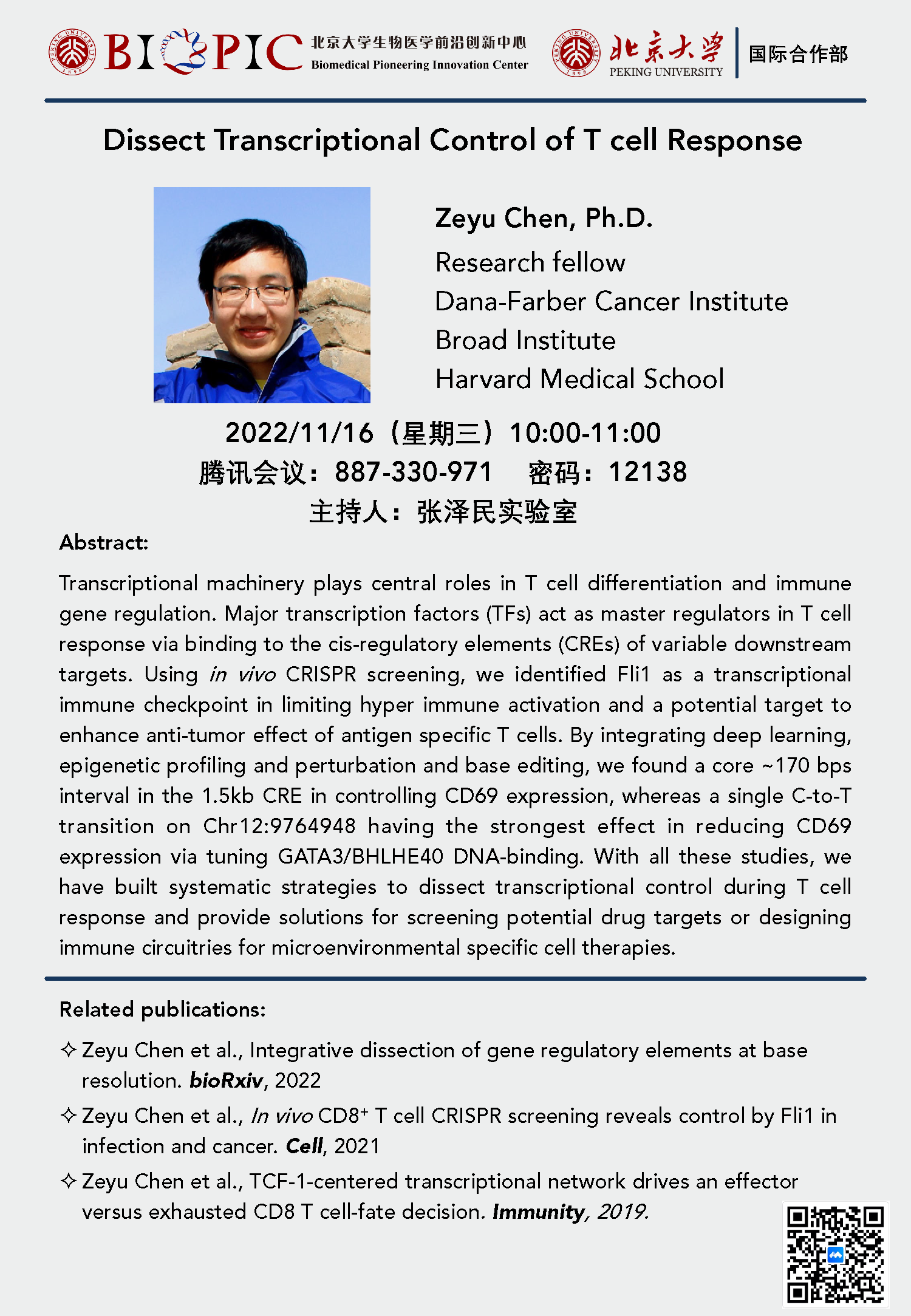
主讲人:陈则宇
哈佛大学医学院
主持人:张泽民实验室
会议时间
2022年11月16日星期三 10:00-11:00
腾讯会议链接
https://meeting.tencent.com/dm/dzShj2zLBaI4
ID:887-330-971
会议密码:12138
Abstract:
Transcriptional machinery plays central roles in T cell differentiation and immune gene regulation. Major transcription factors (TFs) act as master regulators in T cell response via binding to the cis-regulatory elements (CREs) of variable downstream targets. Using in vivo CRISPR screening, we identified Fli1 as a transcriptional immune checkpoint in limiting hyper immune activation and a potential target to enhance anti-tumor effect of antigen specific T cells. By integrating deep learning, epigenetic profiling and perturbation and base editing, we found a core ~170 bps interval in the 1.5kb CRE in controlling CD69 expression, whereas a single C-to-T transition on Chr12:9764948 having the strongest effect in reducing CD69 expression via tuning GATA3/BHLHE40 DNA-binding. With all these studies, we have built systematic strategies to dissect transcriptional control during T cell response and provide solutions for screening potential drug targets or designing immune circuitries for microenvironmental specific cell therapies.
Related publications:
Zeyu Chen et al., Integrative dissection of gene regulatory elements at base resolution. bioRxiv, 2022
Zeyu Chen et al., In vivo CD8+ T cell CRISPR screening reveals control by Fli1 in infection and cancer. Cell, 2021
Zeyu Chen et al., TCF-1-centered transcriptional network drives an effector versus exhausted CD8 T cell-fate decision. Immunity, 2019.



